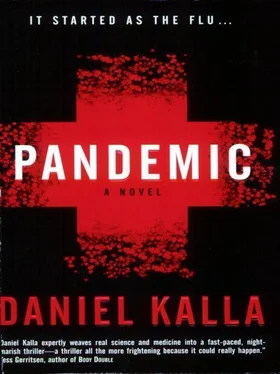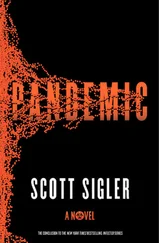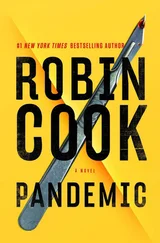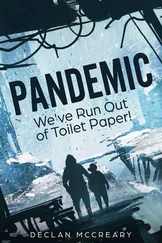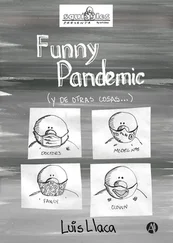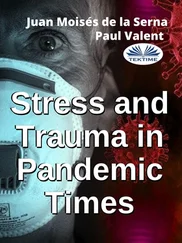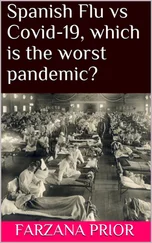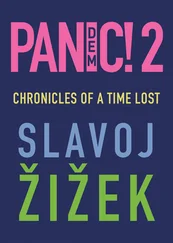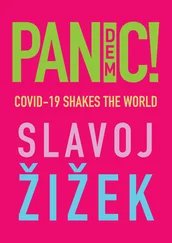Her career since graduation had been so demanding that in retrospect the four years spent completing a PhD at Yale while working two part-time jobs struck her as carefree by comparison. By college, Gwen had accepted her driving ambition as part of her makeup; neither good nor bad, but as much a part of her as her passion for travel or her tireless work ethic. Most of her fellow students kept the goal of their PhD as their primary focus. Not Gwen. She planned her life well beyond the degree. But she never envisioned a career within government. As a student, she assumed she would get her own lab and a national health research grant. To one day have a shot at a Nobel Prize like her mentor, Dr. Isaac Moskor.
Savard was surprised to realize that she hadn’t seen Isaac in almost four years. He never left New Haven. And she rarely found time to make it back. They had kept in touch by e-mail and phone, but Isaac wasn’t much of a phone-talker and even less of a social writer. Professionally, Gwen tried to keep abreast of Moskor’s research because many considered him the leading researcher into antiviral antibiotics. Though fiercely secretive with his work, he trusted Gwen enough to share breakthroughs with her.
Driving by her favorite student haunts, Gwen meandered her way across New Haven. Eventually she reached the sleepy middle-class neighborhood at the edge of town where Moskor lived. She pulled up to the curb in front of his modest, fifty-year-old beige bungalow. Like her former student residence, the house had not changed in the past twenty years.
Isaac Moskor met her at the front door. At least six-four and 250 pounds, he had a square face, slanting forehead, and a protuberant jaw that one might associate with professional wrestling, not academia. In his late sixties, his posture was still bone-straight and age had not diminished his mass. Though Savard was taller than average at five-eight, Moskor still had to stoop down to hug her. He held her in a tentative, awkward embrace, as if afraid of crushing her in his massive arms. Acts of physical intimacy were the only times Gwen ever sensed uncertainty from her mentor.
Moskor stood back and sized her up from toes to hair. “Still too skinny, but otherwise you look okay, kid,” he said with his deep Jersey accent.
Gwen smiled warmly, realizing how much she had missed the man. “Can you still be a kid at forty-two?”
“To a sixty-nine-year-old? Absolutely.” He spun with surprising speed for a man of his age and size. “Don’t stand there like a potted plant. Come. Come.”
Gwen followed him through the small foyer and into the living room. With two worn gray corduroy sofas, a frayed throw rug, and a few charcoal abstract prints, the room was as utilitarian as the rest of his house. Gwen knew that to Moskor and his wife houses were for sleeping and eating. The lab was where one lived.
“Where’s Clara?” Gwen asked, sinking into one of the surprisingly comfortable sofas.
Moskor shrugged. “Who knows? Maybe at the lab. Maybe at our daughter’s.” His face crumpled into a half grin, the deeper creases of which displayed the first evidence of his having aged since their last meeting. “The secret to our forty-plus-year marriage is a deep and abiding indifference to one another’s whereabouts.”
Gwen laughed. “I don’t know why Clara puts up with you. ”
Moskor shrugged again. “My movie-star good looks, I suppose.” He dropped into the sofa beside Gwen. “If you want anything after your trip—like a beer, soda, bite to eat, or whatever-you know where the kitchen is. Nothing’s moved. I’m too old to wait on anybody.”
Realizing how parched she was from the trip, she got up and walked into the same kitchen where she had spent so many evenings helping Clara prepare dinner. “Want anything?” she asked Moskor.
“Wouldn’t say no to a beer.”
Gwen returned in under a minute with two opened beer bottles, knowing better than to bother with glasses in this house.
“How’s the lawyer?” Moskor asked as Gwen sat back down on the couch beside him.
“Peter moved out a couple of days ago,” she said. “We’re getting divorced.”
Moskor nodded, showing as much surprise as if Gwen had told him that Peter was out parking the car.
“Best for both of us, Isaac. We tried, but it hasn’t worked for a long time. We’re night and day, really.”
Moskor shrugged helplessly. “Look, kid, viruses I understand. People I don’t.”
Gwen smiled again. God, she had missed the man. And even though he showed no sign of interest in her domestic tribulations, it felt good to finally unload on someone. While Moskor slumped back in his seat, sipping his beer and once that was finished teetering on the brink of sleep, Gwen poured out her heart She filled in the details of the terminal months of her marriage, from her ambivalence about the failed fertility drugs to the travel schedule she deliberately calculated to increase time apart from her husband.
When she had finished, she wasn’t sure if Moskor was still awake. Just as she leaned closer to peer into his half-mast eyes, he said, “Kid, I don’t do personal advice. You know that. But I will say this again. Apart from being too skinny, you look okay.”
Gwen felt a weight lift off her shoulder. In her role as a top-level government scientist, who at times reported directly to the President, few people held sway over her, but Moskor’s acceptance provided the absolution she sought.
He stretched his long arms over his head. “Hope you didn’t drive all the way up here just to announce you’re single again,” he said. “Because the only single guy in my lab is gay.”
Gwen smiled. “I appreciate you listening, Isaac. It helps.”
Moskor shrugged, looking slightly embarrassed.
“I came up here to hear about your latest research.”
He sat up straighter in his seat. His face lit up, shedding years. “Gwen, it’s showing some real promise.”
Gwen leaned forward and cocked her head in curiosity. “How so?”
“A single-stranded RNA virus like influenza. Nothing to the bug, really. Can’t even reproduce without invading a host cell. But, damned if it doesn’t offer one of the most complex defenses known to nature!” Moskor was suddenly more animated, like a jock at a party where the topic of conversation had just shifted from ballet to football. “With our earlier drugs, A35321 through 348, we saw some promising early results with the chimps, but the bug mutated so quickly they were as good as useless in a couple of life cycles.”
Moskor stood up and hurried out of the room. He jogged back in moments later, carrying a binder under his arm and wheezing slightly. He flopped back onto the sofa and opened the binder in front of him. The page showed a schematic drawing of an organic molecule with multiple limbs, some ending in circular chains. “Here’s the original A35321. The beauty is that she doesn’t target DNA transcription, like most antivirals. No. She blocks the ribosomal RNA translation of the genes. Shuts down the whole protein-producing factory. Influenza can’t replicate without that Ergo, end of infection.” He exhaled heavily. “But the whole A35 series was flawed. Within a few life cycles the microbe kept developing a resistance to it. We kept making minor adjustments, lopping off a chain here or throwing in another there.” His finger flew over the complex structure, pointing to the rings and chains. “But at the end of the day, we were fighting a losing battle. We’d run out of fingers to plug all the leaks that kept springing, you understand?”
His lips curved into a proud grin. “Forced us back to the drawing board. Truth be told, it was Clara’s idea. ‘Why not make it simpler?’ she said.” His hand cut across the sketch, pantomiming the act of cleaving the molecule in half. “Sometimes less is truly more!” His voice rose joyfully. When he flipped a page, the next diagram showed a much more compact molecule. “Meet A36112. Same mechanism of action—we’ve tested several strains of the bug in primates—but so far no resistance documented. As of yet the little devil doesn’t know what hit her.”
Читать дальше
